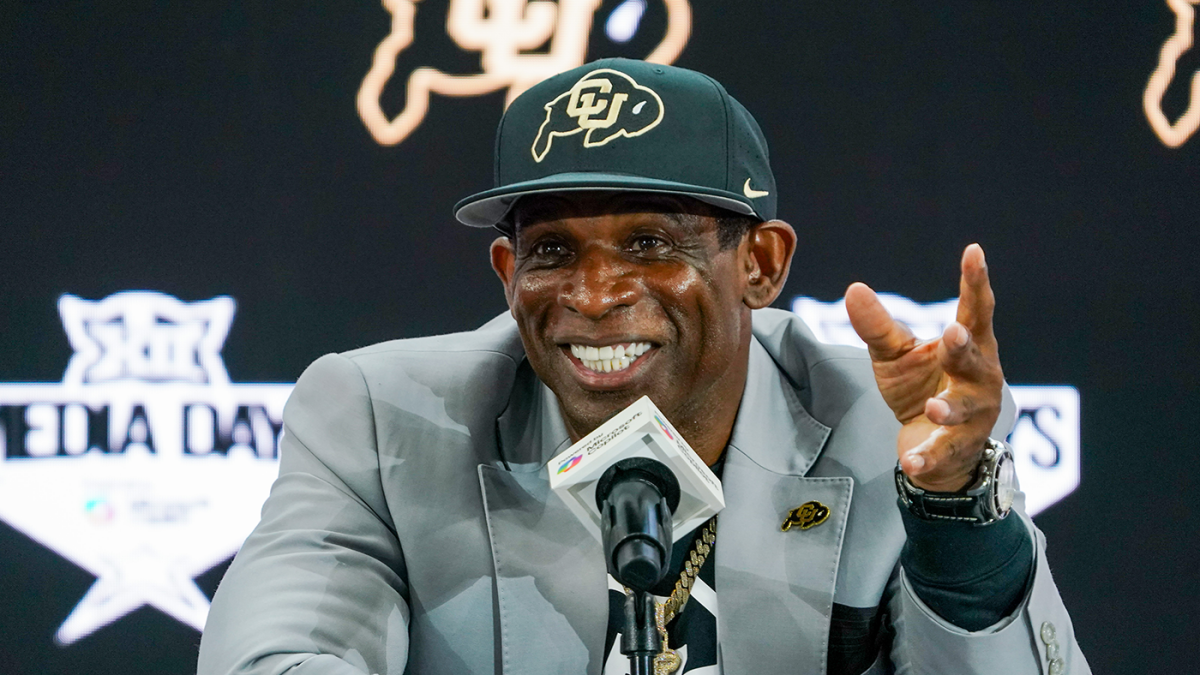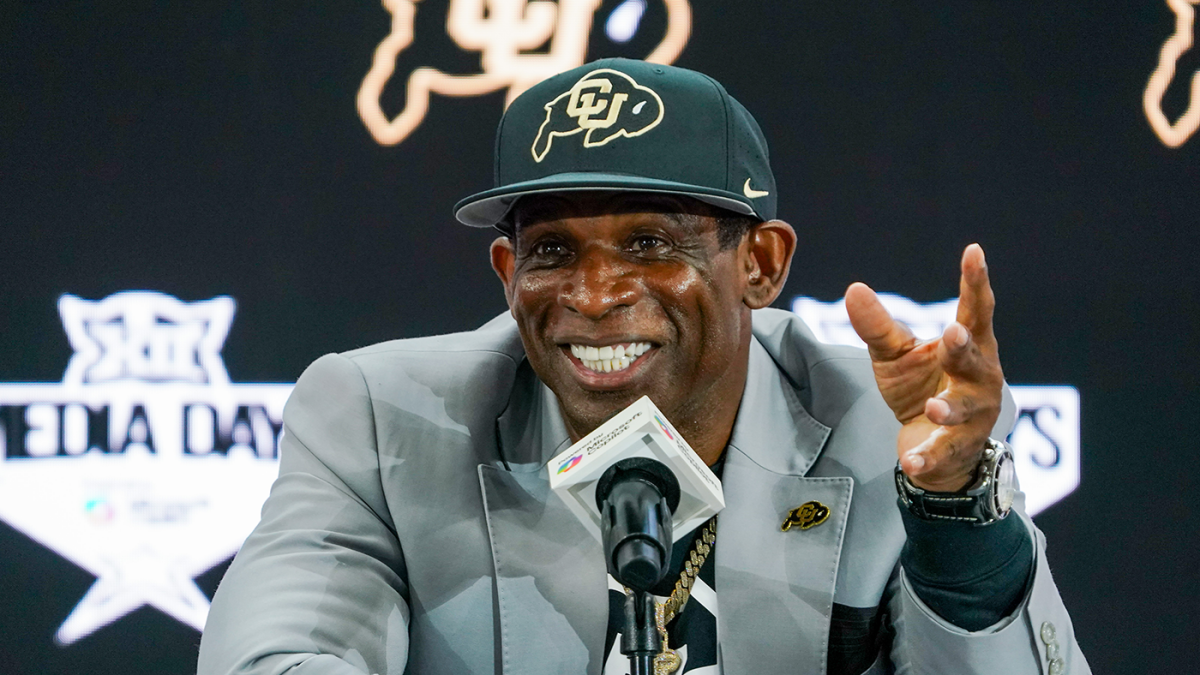Deion Sanders, a name synonymous with athleticism, charisma, and success, has brought his signature flair to the University of Colorado’s football program. Known as “Prime Time,” Sanders is not just a coach but a cultural icon, and his impact on Colorado football is nothing short of transformative. The question remains: Is the Prime Effect sustainable, or is it merely a flash in the pan?
From 1-11 to Playoff Contenders: The Sanders Transformation
Before Deion Sanders arrived in Boulder, the Colorado Buffaloes were in a state of disarray. The 2022 season was a disaster, culminating in a 1-11 record that left the program in shambles. Sanders, however, saw an opportunity. He didn’t just tweak the roster; he detonated it. Utilizing the transfer portal with unprecedented aggression, Sanders brought in a wave of new talent, including his son, Shedeur Sanders, a highly touted quarterback.
This aggressive approach was met with criticism. Critics argued that the mass exodus of players was disruptive and callous. Sanders, however, remained unapologetic. He believed that a complete overhaul was necessary to build a winning culture. His philosophy was simple: Incremental improvements wouldn’t cut it. He wanted a complete transformation.
And to a certain extent, he achieved it. In his second year, Sanders steered Colorado to contention for the College Football Playoff, a feat many considered impossible just a year prior. The program’s trajectory remains upward, fueled by Sanders’ relentless recruiting and his ability to attract top-tier talent. The numbers don’t lie. The Buffaloes went from a 1-11 season to a program with genuine aspirations of competing for a national championship.
Beyond the Field: Building a Brand, Inspiring Belief
Sanders’ impact extends far beyond wins and losses. He understands the power of branding and uses it to its fullest potential. His personal style, his unwavering confidence, and his quotable soundbites create a media frenzy wherever he goes. He isn’t just coaching football; he’s selling a vision, a lifestyle, a belief in the impossible.
His Big 12 Media Day appearance was a masterclass in self-promotion. Dressed impeccably, he commanded the stage, delivering soundbites that resonated far beyond the sports world. He understands that in modern college football, visibility is paramount. Attracting attention leads to recruiting success, which in turn leads to on-field success.
Moreover, Sanders inspires belief, not just in his players but in the entire Colorado community. He has instilled a sense of pride and optimism that was sorely lacking. Fans who had long given up on the program are now packing the stadium, wearing the merchandise, and believing that anything is possible. The Prime Effect is more than just a coaching strategy; it’s a cultural movement.
The Shedeur Sanders Factor: A Generational Shift
The arrival of Shedeur Sanders at quarterback was a pivotal moment in the Colorado turnaround. He isn’t just the coach’s son; he’s a genuinely talented player with the poise and arm talent to thrive at the highest level. He provides immediate credibility to the program and attracts other talented players who want to play alongside him.
However, Shedeur’s presence also raises questions about the future. With Shedeur and other key players like Travis Hunter expected to enter the NFL draft soon, Colorado faces the challenge of maintaining its momentum. Can Sanders continue to attract top talent and sustain the program’s success once his star players move on?
This is a question that plagues many programs that rely heavily on a single star player. Sanders has shown an ability to recruit and develop talent, but the true test will be whether he can build a sustainable system that can thrive even after his star players leave. The Prime Effect is undeniable, but its longevity remains to be seen.
Navigating the Transfer Portal and NIL Landscape
Deion Sanders has fully embraced the modern realities of college football, including the transfer portal and Name, Image, and Likeness (NIL) deals. He understands that players now have more agency than ever before and that programs must adapt to this new landscape to remain competitive.
His aggressive use of the transfer portal has been both praised and criticized. While it allowed him to quickly rebuild the Colorado roster, it also raised concerns about roster instability and the potential for a revolving door of players. Sanders, however, sees it as a necessary evil. In a world where players can transfer freely, he believes that the only way to build a winning program is to be proactive and aggressive in the transfer market.
Similarly, NIL deals have become a crucial part of the recruiting process. Sanders understands that players are now looking for opportunities to monetize their fame, and he has worked to create an environment where his players can succeed both on and off the field. This has not only helped him attract top talent but has also elevated the program’s profile.
Long-Term Commitment: Building a Dynasty or a Flash in the Pan?
The biggest question surrounding Deion Sanders and Colorado is whether he is committed to building a long-term dynasty or if he will eventually move on to a bigger program. Speculation about his potential departure has swirled almost since he arrived in Boulder.
The athletic director, Rick George, has stated that keeping Sanders at Colorado long-term is a “big priority.” However, in the cutthroat world of college football, loyalty is often secondary to ambition. If Sanders continues to have success at Colorado, it’s inevitable that other programs will come calling.
Whether Sanders stays in Boulder for the long haul remains to be seen. His legacy at Colorado will depend not only on his on-field success but also on his ability to build a sustainable program that can thrive even after he is gone. The Prime Effect is real, but its longevity will be determined by Sanders’ ability to create a system that can outlast his tenure.
Conclusion: The Enduring Appeal of Prime
Deion Sanders is more than just a football coach; he’s a cultural phenomenon. He understands how to capture attention, inspire belief, and build a brand. While his methods may be unconventional, his impact is undeniable. He has transformed Colorado football from a laughingstock into a program with genuine aspirations. The Prime Effect is real, and it’s captivating audiences both on and off the field.
Whether he can sustain this level of success and build a lasting legacy remains to be seen. But one thing is certain: Deion Sanders is making college football a whole lot more interesting. His ability to attract talent, inspire belief, and navigate the modern landscape of college football is unparalleled. The Prime Effect is more than just a coaching strategy; it’s a cultural movement that is reshaping the sport.












